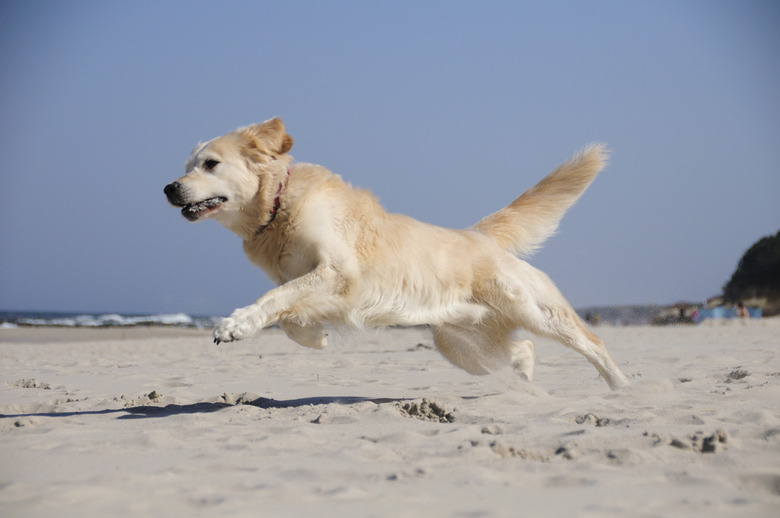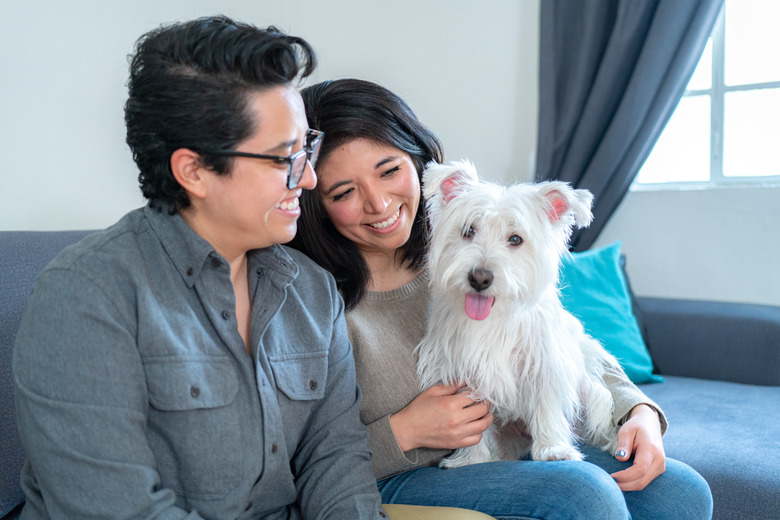Side Effects Phenylpropanolamine For Dogs: Uses Of Phenylpropanolamine In Dogs Explained By A Veterinarian
If your pooch develops issues with urine leakage at some point after being spayed, your veterinarian may prescribe phenylpropanolamine. Phenylpropanolamine is the active ingredient in several brand-name medications, including Proin, Proin ER, Urilin, and Propalin. Though phenylpropanolamine for dogs is generally well tolerated, it's not without side effects, most of which are usually mild.
What is phenypropanolamine?
What is phenypropanolamine?
Phenylpropanolamine hydrochloride, or PPA, is an FDA-approved drug that is used in veterinary medicine for the control of urinary incontinence in dogs. The drug acts on receptors that constrict the smooth muscle of the internal urethral sphincter. It's sometimes prescribed to female dogs who lose adequate urethral sphincter tone at some point after being spayed. This decreased tone — urethral sphincter hypotonus — will cause a dog to leak urine while relaxed or sleeping.
How is phenylpropanolamine administered?
How is phenylpropanolamine administered?
The version of PPA that's usually dispensed to dogs in the United States is Proin, made by PRN Pharmacal. Proin comes in 25-, 50-, and 75-milligram liver-flavored chewable tablets. There is also a nonchewable extended-release version, Proin ER. In Europe and Canada, a syrup called Propalin is also available. Another syrup, Urilin, is available in the United Kingdom.
Proin is taken by mouth, preferably after some food, to reduce the chance of vomiting. It comes in 18-, 36-, 74-, and 145-mg nonchewable tablets. Since this formulation cannot be broken or crushed, it cannot be prescribed to dogs who weigh under 10 pounds because it would go over the dosing range.
If you forget to give your dog their medication, give it as soon as you remember unless it's close to the time for the next dose. If your pet misses a dose, don't give twice as much for the next dose. For this drug, it's better to miss a dose than to get too much.
Side effects of phenylpropanolamine for dogs
Side effects of phenylpropanolamine for dogs
After taking phenylpropanolamine, it's possible that your dog might experience side effects. The most common side effects include:
- Elevated heart rate
- Increased blood pressure
- Irritability
- Panting
- Dilated pupils
- Vomiting
- Diarrhea
- Restlessness
- Appetite loss
- Increased thirst
- Lethargy
- Protein loss in the urine
- Insomnia
- Behavior changes, like aggression or anxiety
- Weight loss
More serious side effects can include urine retention, seizures, or tremors. If you notice any adverse effects, discuss them with your veterinarian. They may stop the medication or adjust its dosage depending on the severity of your dog's symptoms.
Drug interactions: phenylpropanolamine for dogs
Drug interactions: phenylpropanolamine for dogs
Some dogs may have an allergic reaction to phenylpropanolamine, exhibiting symptoms such as facial swelling, excessive vomiting, hives, or convulsions. These effects are not normal. If you notice them, immediately seek veterinary care. This medication can interact negatively with other medications, including nonsteroidal anti-inflammatory drugs (NSAIDs), pseudoephedrine, epinephrine, and tricyclic antidepressants.
PPA should not be given to a dog within two weeks of receiving an MAOI (monoamine oxidase inhibitor), including a dip sometimes used for demodicosis called Mitaban (generic amitraz). Amitraz is also found in the flea/tick collars Preventic and Certifect. Speak with your veterinarian if your pooch is taking any medications, including vitamins or supplements. Dogs on PPA who undergo general anesthesia with halothane, isoflurane, or sevoflurane gas may experience arrhythmias.
Is phenylpropanolamine safe for dogs?
Is phenylpropanolamine safe for dogs?
Phenylpropanolamine is generally considered safe to use in healthy dogs. It should be used with caution in dogs with heart disease, high blood pressure, kidney disease, liver disease, glaucoma, or diabetes mellitus. Since PPA can cause increased thirst, it's important that your dog has access to fresh water at all times. Dogs with a history of behavioral issues, such as anxiety or aggression, may do better on an estrogen replacement medication, like Incurin.
Due to the liver flavor of the chewable tablets, dogs may try to chew through the prescription bottle. Store PPA in a secure location at room temperature that is out of the reach of children and also out of your dog's reach. If your dog gets into their prescription bottle or if they accidentally receive a double dose, take them to your DVM immediately. If your regular veterinary clinic is closed, go to an emergency hospital.
The bottom line
The bottom line
Phenylpropanolamine, or Proin, is dispensed for some dogs who develop reduced muscle tone in their urethra after being spayed, resulting in urinary incontinence. This medication is generally safe to use in otherwise healthy dogs. It should be used with caution in dogs who have medical conditions such as kidney disease, liver disease, and diabetes. Side effects include elevated heart rate, vomiting, diarrhea, insomnia, restlessness, and hypertension. Never exceed the recommended dosage of Proin.



